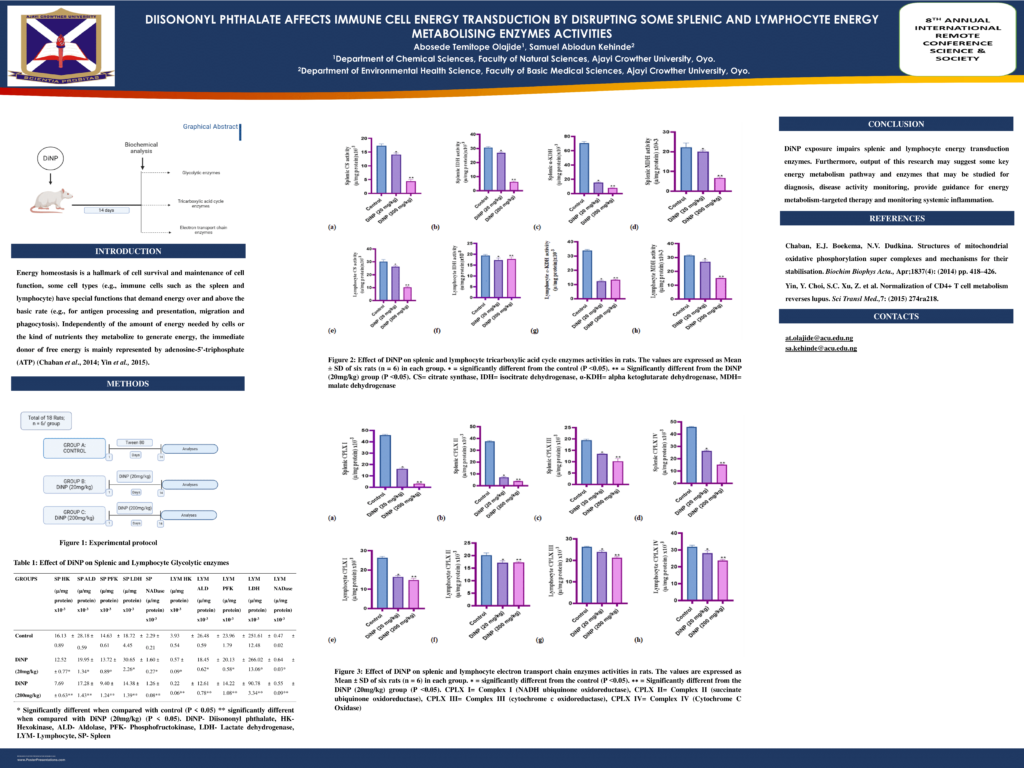Abosede Temitope Olajide
Conference 2023 Presentation
Project title
DIISONONYL PHTHALATE AFFECTS IMMUNE CELL ENERGY TRANSDUCTION BY DISRUPTING SOME SPLENIC AND LYMPHOCYTE ENERGY METABOLISING ENZYMES ACTIVITIES
Authors and Affiliations
Abosede Temitope Olajide1, Samuel Abiodun Kehinde1,2
1. Department of Chemical Sciences, Faculty of Natural Sciences, Ajayi Crowther University, Oyo.
2. Department of Environmental Health Science, Faculty of Basic Medical Sciences, Ajayi Crowther University, Oyo
Abstract
Background
Energy homeostasis is a hallmark of cell survival and maintenance of cell function, some cell types (e.g., immune cells such as the spleen and lymphocyte) have special functions that demand energy over and above the basic rate (e.g., for antigen processing and presentation, migration and phagocytosis). Independently of the amount of energy needed by cells or the kind of nutrients they metabolize to generate energy, the immediate donor of free energy is mainly represented by adenosine-5’-triphosphate (ATP).
Methods
The effect of DiNP on splenic and lymphocyte energy metabolism was examined. Eighteen Wistar rats were divided into 3 groups of six rats each: Group A received Tween-80 (control), DiNP (20 mg/kg/BW) was given to Group B, and 200mg/kg DiNP was given to Group C orally (gavage) for 14 days. The activity of splenic and lymphocyte glycolytic, tricarboxylic acid cycle and oxidative phosphorylation enzymes were assessed.
Results
The glycolytic, tricarboxylic acid cycle and oxidative phosphorylation enzymes studied were predominantly downregulated, with the exception of splenic and lymphocyte lactate dehydrogenase activity at 20mg/kg DiNP relative to control (P < 0.05).
Conclusions
Finally, DiNP exposure impairs splenic and lymphocyte energy transduction enzymes. Furthermore, output of this research may suggest some key energy metabolism pathway and enzymes that may be studied for diagnosis, disease activity monitoring, provide guidance for energy metabolism-targeted therapy and monitoring systemic inflammation.

